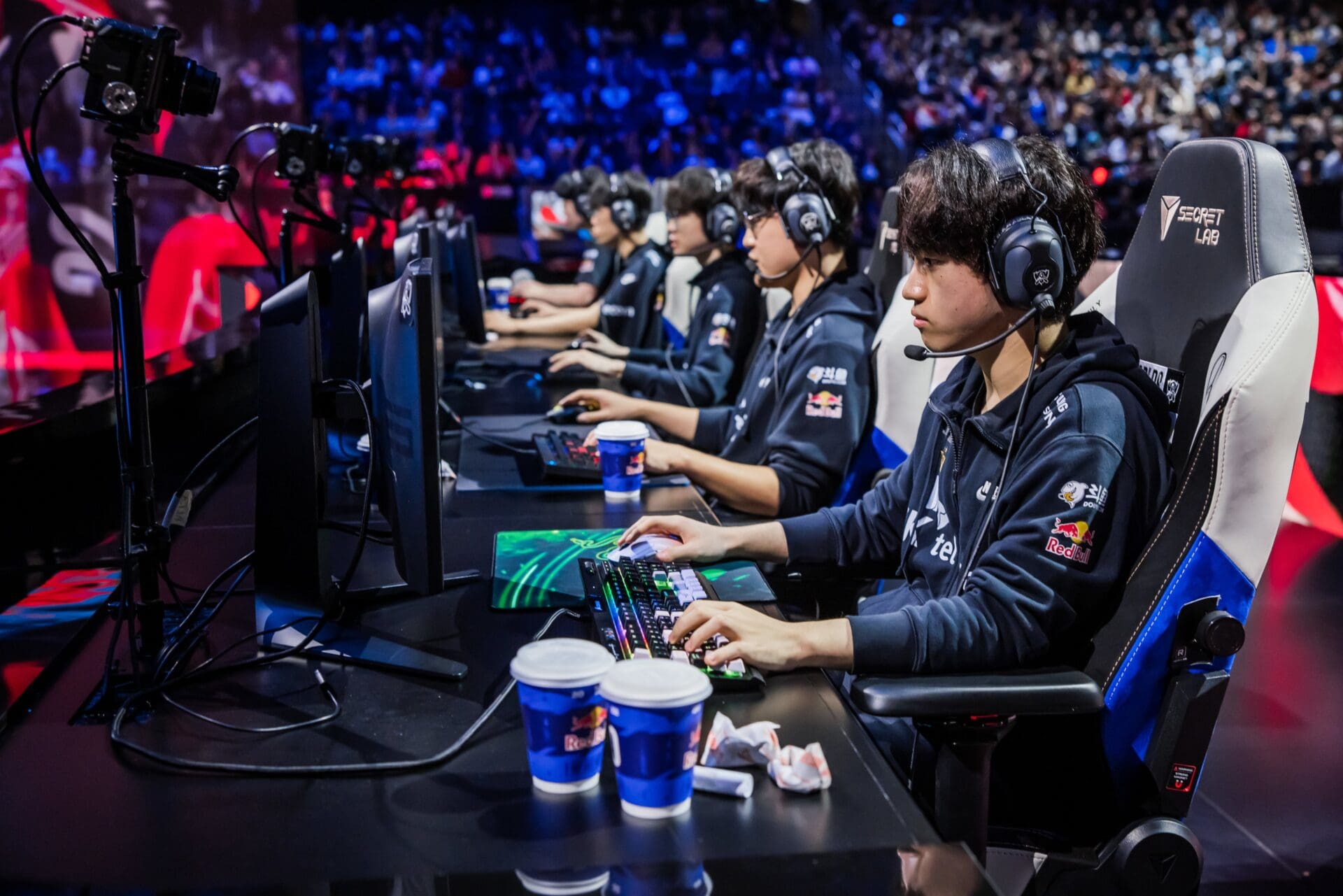The Hungarian National Media and Infocommunications Authority (NMHH) published a guide for parents who are looking to protect their children in the virtual world. The guide is aimed at parents who are merely beginning to introduce themselves to the world of gaming. The authors are attempting to let them know why their kids are gaming, what gaming really entails, why it could be positive for parents to also start playing, how to avoid money-sinks and how to combat online bullying.
All Kids Are Gamers These Days
As the guide put it, ‘it is completely natural that kids are playing’. It is also not surprising that they choose a computer, the television, a tablet or a smartphone to do so. According to a research conducted in Hungary, 76 per cent of kids between the age of 6 and 18 play videogames. However, kids are not the only ones who enjoy a bit of gaming now and then. The average age of players in Hungary is 26.7 years.
However, as gaming becomes more and more popular among children and teenagers, it is important to consider the potential dangers that they may face. While gaming can be a fun and engaging activity, it can also pose risks to children’s physical and mental health, as well as their safety online. In this piece, we will explore some of the dangers that kids who game may face.
Gaming is Addictive
One of the biggest dangers of gaming is the risk of addiction. Video games are designed to be engaging and rewarding, and it can be easy for children to get caught up in the excitement and spend hours playing. However, excessive gaming can have negative consequences on a child’s health and well-being, including reduced physical activity, poor sleep quality, and neglect of other responsibilities such as schoolwork and social interactions.
Parents should be aware of the signs of gaming addiction, such as increased irritability, difficulty cutting back on gaming, and neglect of personal hygiene and responsibilities. If a child is showing signs of addiction, it may be necessary to limit their gaming time and seek professional help.
Online Exposure
Gaming often involves playing online with other players, which can expose children to a range of online risks, such as cyberbullying, harassment, and exposure to inappropriate content. Children may also be vulnerable to online predators who seek to exploit their vulnerabilities.
Parents should monitor their children’s online activity and ensure that they are taking steps to protect their privacy and safety. This includes setting parental controls on gaming devices, teaching children about online safety, and encouraging them to report any inappropriate behaviour or content they encounter online.
Physical Health Risks
Sitting for long periods while gaming can have negative consequences on a child’s physical health, including increased risk of obesity, back pain, and eye strain. Children who spend excessive amounts of time gaming may also have reduced opportunities for physical activity, which can further contribute to these health risks.
Parents should encourage their children to take breaks from gaming and engage in physical activity, such as playing outside or participating in sports. They can also set limits on gaming time and encourage their children to engage in other activities that promote physical health and well-being.
Gaming May Lead to Social Isolation
While gaming can provide a sense of community and connection for children, it can also lead to social isolation. Children who spend excessive amounts of time gaming may neglect other important social interactions, such as spending time with family and friends or participating in extracurricular activities.
Parents should encourage their children to balance their gaming with other activities that promote social interaction and engagement, such as playing with friends or participating in group activities. They can also set limits on gaming time and encourage their children to prioritize other important social and developmental needs.
Streaming and Gaming: New Platforms Attract Children
In recent years, the gaming industry has expanded significantly, with the rise of streaming platforms and e-sports. Streaming platforms such as Twitch and YouTube Gaming have become increasingly popular among gamers, allowing them to broadcast their gameplay to a global audience. E-sports, or competitive gaming, has also become a multi-billion-dollar industry, with professional gamers competing for cash prizes and sponsorships.
While streaming and e-sports can provide new opportunities for gamers, there are also potential dangers and challenges associated with these activities. This part of the article will discuss the impact of streaming and e-sports on children, including the potential dangers of online exposure, the risks of addiction, and the importance of balancing gaming with other activities.
Streaming platforms like Twitch and YouTube Gaming have revolutionised the gaming industry by allowing gamers to stream their gameplay to a global audience. This has opened up new opportunities for gamers, including the potential to earn money through sponsorships and donations. However, the rise of streaming platforms has also raised concerns about the potential dangers of online exposure.
Children who stream their gameplay online may be exposed to negative comments and cyberbullying, which can have a negative impact on their mental health and well-being. In addition, children who stream their gameplay may be vulnerable to online predators who seek to exploit their vulnerabilities. It is important for parents to monitor their children’s online activity and ensure that they are taking steps to protect their privacy and safety.
In addition, the rise of e-sports has created new challenges for parents and children. While competitive gaming can be a fun and exciting activity, it can also be addictive and time-consuming. Children who participate in e-sports may be at risk of developing an addiction, which can have negative consequences on their health and grades. E-sports players also start at a very young age and are prone to burnout before they are even 20 years old.
Despite the potential dangers and challenges associated with streaming and e-sports, these activities can also provide new opportunities and benefits for children. For instance, e-sports can help children develop teamwork and communication skills, as well as the ability to think critically and make quick decisions under pressure.
What is more, streaming and e-sports can provide children with a sense of community and belonging. Many online communities have formed around gaming and e-sports, providing children with a platform to connect with others who share their interests and passions. This can help children build social skills and develop meaningful relationships with others.

The Controversy Around Violence in Videogames
Violence in video games has been a topic of controversy and debate for many years. While some argue that violent video games can have a negative impact on children and teenagers, others contend that there is no conclusive evidence to support this claim.
Arguments Against Violence in Video Games:
One of the main arguments against violence in video games is that it can desensitize children and teenagers to violence. Playing violent video games may make it easier for children to accept and tolerate violent behaviour in real life. This can lead to increased aggression and even violent behaviour, according to some studies.
Another argument against violence in video games is that it can normalize violent behaviour, making it seem acceptable or even desirable. Children may begin to view violence as a viable solution to problems and conflicts, rather than seeking nonviolent alternatives.
Studies have found that playing violent video games can increase levels of aggression in children and teenagers. This can manifest in a range of behaviours, from verbal aggression to physical violence.
Arguments For Violence in Video Games:
One argument in favour of violence in video games is that it can serve as a form of catharsis for players. By allowing players to act out violent fantasies in a safe and controlled environment, video games may help reduce feelings of aggression and frustration in real life.
Another argument in favour of violence in video games is that it can be a form of creative expression. Many video games feature complex and engaging storylines that require players to navigate difficult moral dilemmas and make tough decisions. Violence may be a necessary component of these stories, providing a dramatic and engaging experience for players.
Finally, some argue that violence in video games is protected under the First Amendment’s guarantee of freedom of expression. Like books, movies, and other forms of media, video games should be allowed to explore complex and controversial themes, including violence.
However, as much as it is discussed, how violence in games can affect a kid only comes down to one factor in the end: It is up to parents to monitor their children’s gaming habits and make informed decisions about the types of games they allow them to play.
The Financial Burden of Gaming
Gaming has undergone significant changes in recent decades, and today a wide range of video games are available for players. However, gaming can be a significant financial burden, and players need to be careful not to overspend.
The first financial burden of gaming is the cost of purchasing games. Video games can be quite expensive, especially new releases or premium editions. In Hungary, the average price of a new game can range from 15,000 HUF to 25,000 HUF, depending on the platform and edition. This can be a significant expense for players who want to keep up with the latest games.
Many games offer in-game purchases, which allow players to buy virtual items, additional levels, or bonuses. While these purchases can enhance the gaming experience, they can also add up quickly and become a financial burden. In Hungary, in-game purchases can range from a few hundred HUF to several thousand HUF, depending on the game and the item.
Some games require a subscription fee to access additional content or features. For example, massively multiplayer online role-playing games (MMORPGs) often charge a monthly fee for players to access the full game. Subscription fees can range from a few thousand HUF to over 10,000 HUF per month.
Another financial burden of gaming is the cost of equipment. Players need a gaming console or computer, as well as peripherals such as controllers, keyboards, and headsets. In Hungary, a gaming console can cost anywhere from 80,000 HUF to 150,000 HUF, while a gaming computer can cost even more. Peripherals can also add up, with controllers costing around 10,000 HUF and headsets costing up to 30,000 HUF. A well set-up PC for instance, that can handle the most recent games should cost about 500,000 HUF, without peripherals.
Finally, gaming requires a reliable and fast internet connection, which can be another financial burden. The cost of a high-speed internet connection can range from 8,000 HUF to 20,000 HUF per month, depending on the provider and the speed.
Gaming can be a significant financial burden for players, with costs ranging from the purchase of games to subscriptions, in-game purchases, gaming equipment, and internet connection. It is important for players to be aware of these costs and to budget accordingly, to avoid overspending and financial difficulties. Additionally, parents should monitor their children’s gaming habits and spending to ensure that they are not putting a strain on the family’s finances.
Parents Should Remain Involved and Informed
In conclusion, while playing video games can be a fun and engaging activity for children, it is important for parents to be aware of the potential dangers and challenges associated with gaming, particularly in the age of online gaming and streaming platforms. The risks of addiction, online exposure, physical health problems, and social isolation are all important considerations for parents to keep in mind when their children are gaming.
However, it is important to note that gaming can also provide benefits to children, such as improved problem-solving and decision-making skills, as well as opportunities for social interaction and community building. Parents can encourage their children to balance their gaming with other activities that promote physical health, social interaction, and other important developmental needs.
Overall, the key to ensuring that children can enjoy video games safely and responsibly is for parents to stay involved and informed. Parents must be aware of the risks associated with online exposure, addiction, and excessive gaming, and take steps to protect their children’s well-being. With the right balance of guidance and support, gaming can be a rewarding activity that can help children develop important skills and relationships. By monitoring their children’s online activity, setting limits on gaming time, and encouraging a healthy balance of gaming and other activities, parents can help their children reap the benefits of gaming while avoiding the potential pitfalls.








